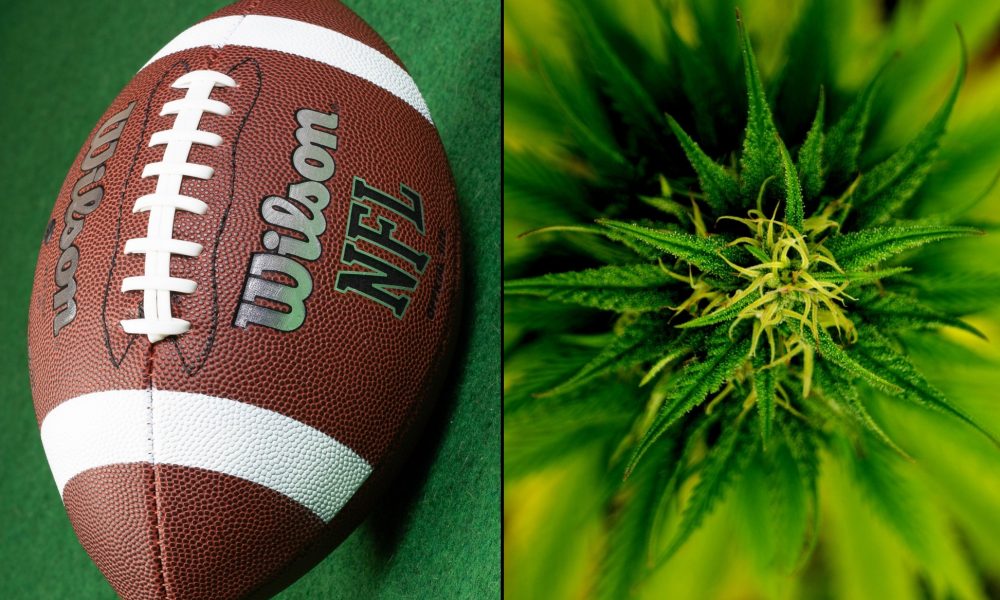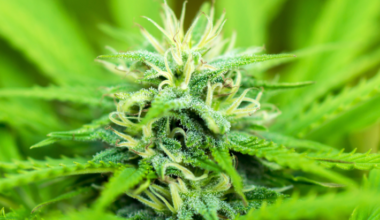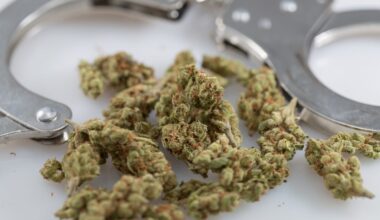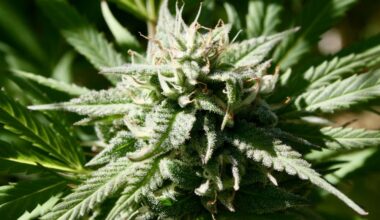“I felt it was worth the risk of committing a crime… I felt good physically and my head was much clearer. I felt free—free from the downward spiral.”
By Wesley Muller, Louisiana Illuminator
Former New Orleans Saints player Steve Gleason said Friday that medical marijuana saved him from a “downward spiral” after his ALS diagnosis. Friday marked the first time Gleason has ever spoken publicly about his use of the drug. He was testifying before the Medical Marijuana Commission set up by Louisiana Legislature.
A former special teams standout, Gleason was diagnosed with ALS (Lou Gehrig’s disease) in 2011 and entered the meeting room at the State Capitol in his motorized wheelchair—a result of the neuromuscular disease taking away his use of all muscle functions.
Speaking through a computer that tracks his eye movements, Gleason drew laughter when he began his testimony by pointing out how he came dressed in a “tuxedo,” which was actually just a tuxedo T-shirt. He cracked similar jokes throughout his speech but captivated the entire room when describing a dark point in his life in 2013. Doctors had recommended that he put a hospital bed in his home to sleep in and prescribed him medications for the pain and anxiety that accompanies the disease.
This summary of my testimony at the Medical Marijuana Committee meeting today may get interrupted if we end up evacuating for the hurricane.
For now, I continue… pic.twitter.com/lG56eEl5Nc— Steve Gleason – “Live Impossible” (@SteveGleason) August 27, 2021
He described how the hospital bed had bars on the sides that are designed to keep a patient from rolling off.
“The irony was here I was staring at the ceiling without any ability to move,” Gleason said. “I was angry and resentful… This was something of a downward spiral.”
The side effects of the prescription medication only made things worse, he said. He tried different types and dosages but nothing seemed to work. The physical discomfort brought an “overwhelming fear” to his mind, he said.
One day he told his wife, “I have got to get out of this. There must be a better way.”
A friend recommended medical marijuana. Gleason had only tried marijuana a few times prior to that point—smoking it recreationally, but his friend was recommending something different—a cannabis tincture, which is a pharmaceutical grade liquid extract. The drug was still illegal in Louisiana at that time.
Looking like the Gleason family is “sheltering in place”, at this point.
My search for a solution to break out of the downward spiral of pharmaceuticals in a state where medical Marijuana is not available, requires some risk… pic.twitter.com/sDPtuglP3Y
— Steve Gleason – “Live Impossible” (@SteveGleason) August 28, 2021
“I felt it was worth the risk of committing a crime, but just for safe measure, I did bring our attorney,” Gleason said, drawing another round of laughter.
For the first time in a while, he said he was able to function, had more energy and was more productive.
“I felt good physically and my head was much clearer,” he said. “I felt free—free from the downward spiral.”
Gleason said medical marijuana gave him the ability to find new purpose in life. He went back to sleeping in his king-size bed alongside his wife and worked on growing his ALS advocacy foundation, Team Gleason, which has since given $18 million in adventure, technology, equipment and care services to over 20,000 people living with ALS.
“I’m not saying it all happened because of the help of medical marijuana, but I can say with 100 percent confidence that those accomplishments, the inspiration, nor the tens of thousands of people that we serve—none of it happens if I were still on those prescription pills,” Gleason said before exchanging parting words with the lawmakers and closing with his famous motto: “No White Flags.”
I fully understand the fragile nature of my life. Not so different than any of you.
I’m healthier than I have been in the past decade. I’m energized. I’m flourishing. I’m free. pic.twitter.com/Zi1Cz6aQgx— Steve Gleason – “Live Impossible” (@SteveGleason) August 28, 2021
The Medical Marijuana Commission is on a “fact-finding mission” to explore options for improving the state’s medical marijuana law, Chairman Rep. Joe Marino (I-Gretna) said.
Lawmakers first cracked Louisiana’s doors to the drug in 2015 with legislation that has allowed a very limited market to open. Marino said the law was designed to allow Louisiana to “crawl before we walk.” Since then, state laws surrounding marijuana have slowly progressed.
“This is 2021,” Marino said. “We’re six years passed that. I think we’re finished crawling. I think we need to do something other than crawling, and I think that this commission is going to help us achieve that goal of getting medicine to patients.”
Thanks for invitation @RepJoeMarino & great pictures!! https://t.co/9lkiPm1nPv
— Steve Gleason – “Live Impossible” (@SteveGleason) August 28, 2021
Among other members of the public who testified was Katelyn Castleberry, who said she purchases medical cannabis as a treatment for her son’s epilepsy. However, because of Louisiana’s limited market, the drug costs her about $900 per month, she said.
Castleberry’s testimony struck a chord with several lawmakers who said they’d like to see insurance companies begin covering the costs of the drug. Another issue is the lack of drug testing exemptions for medical marijuana.
Rep. Jack McFarland (R) said he has constituents who have lost their jobs and even professional licenses, such as those for truck drivers, due to outdated drug screening regulations.
“As we move forward, I’d like us to consider at least those two things,” McFarland said.
This story was first published by Louisiana Illuminator.
Image element courtesy of Marco Verch.
Medical Disclaimer:
The information provided in these blog posts is intended for general informational and educational purposes only. It is not a substitute for professional medical advice, diagnosis, or treatment. Always seek the advice of your physician or other qualified healthcare provider with any questions you may have regarding a medical condition. The use of any information provided in these blog posts is solely at your own risk. The authors and the website do not recommend or endorse any specific products, treatments, or procedures mentioned. Reliance on any information in these blog posts is solely at your own discretion.






